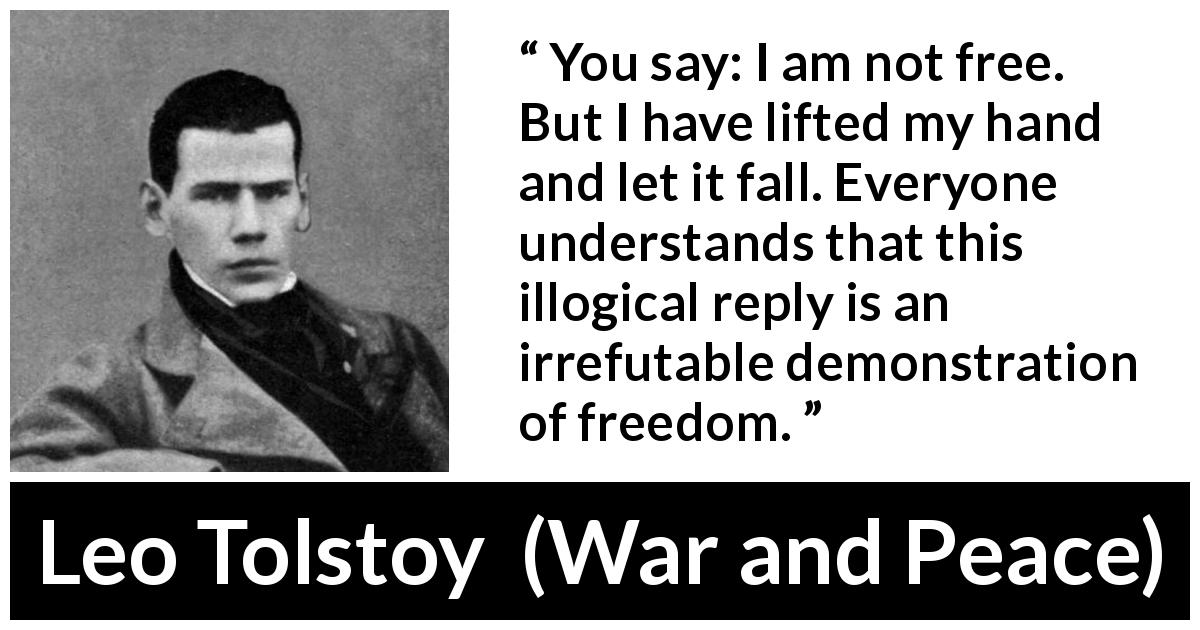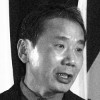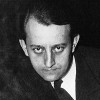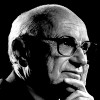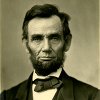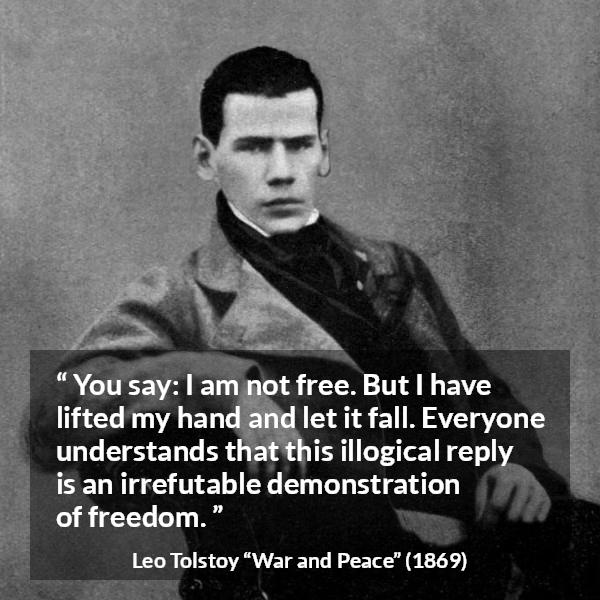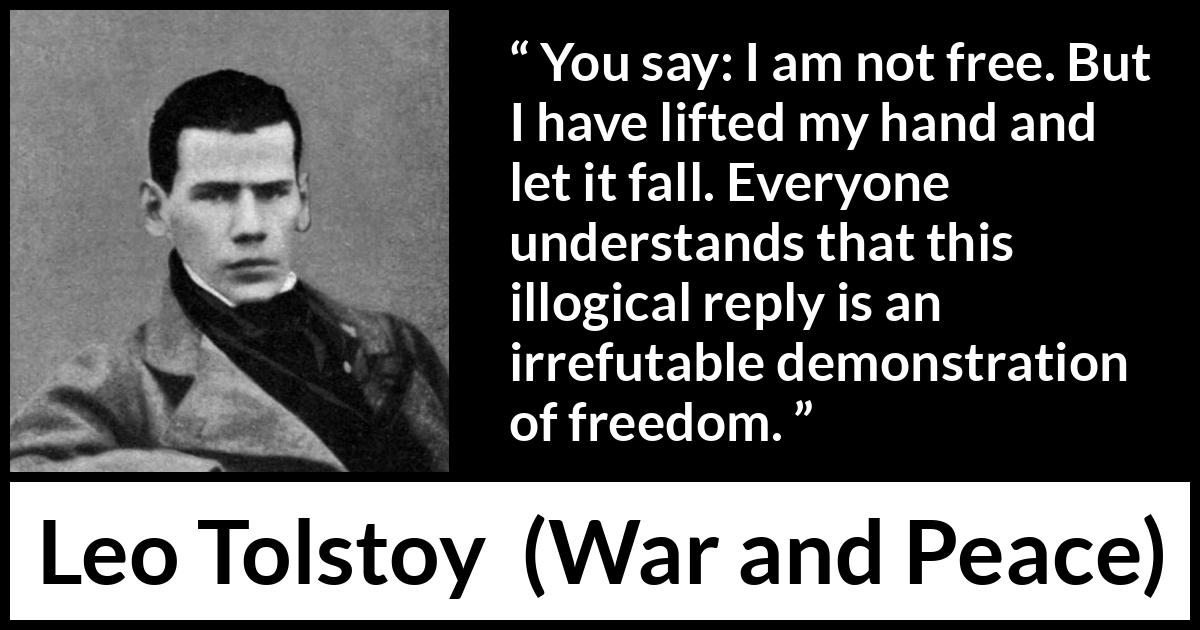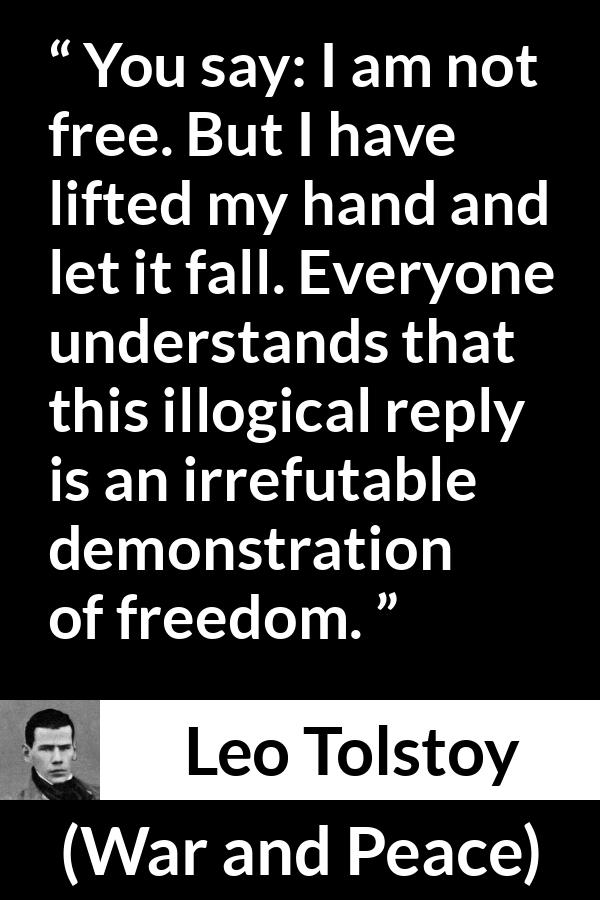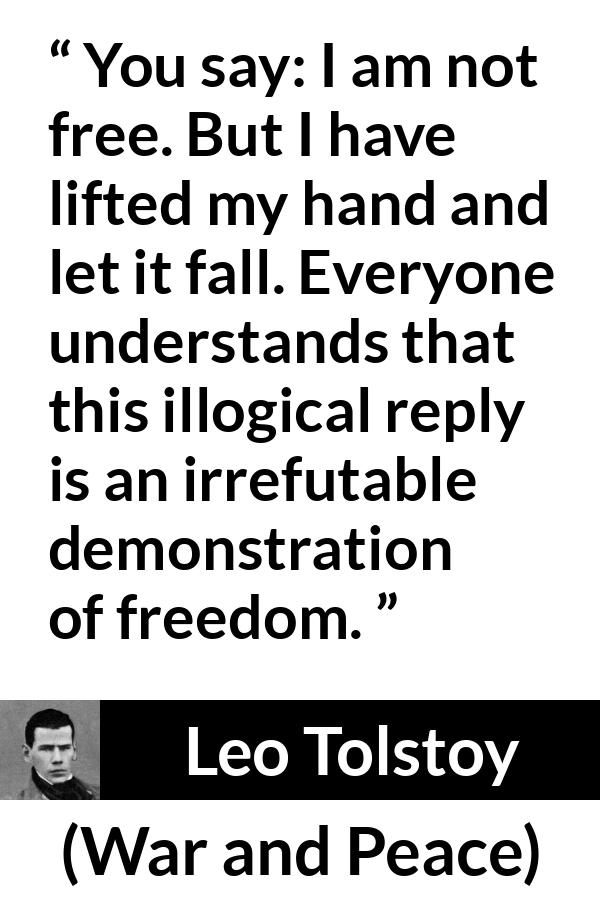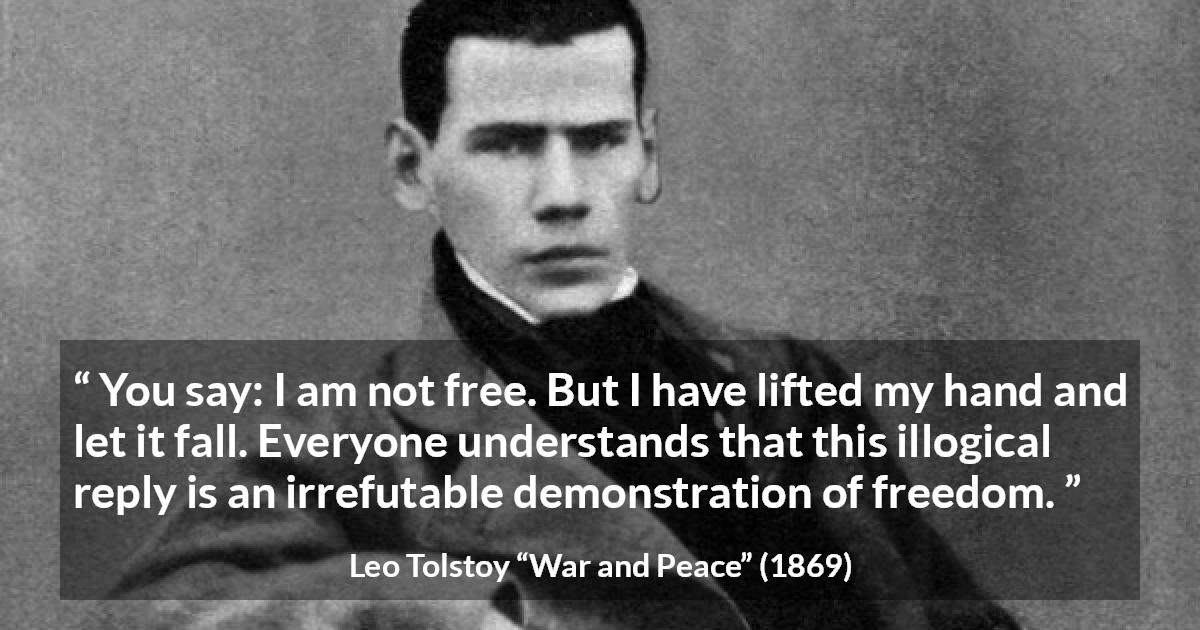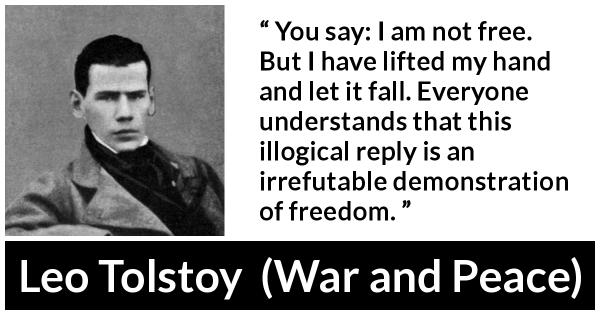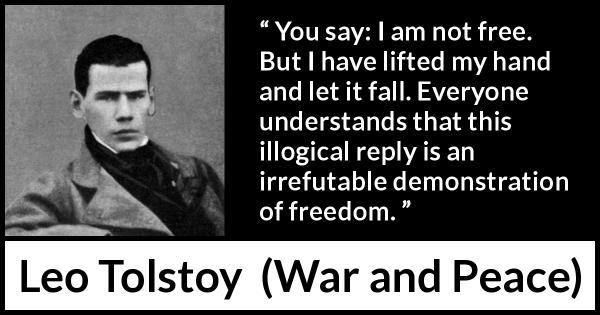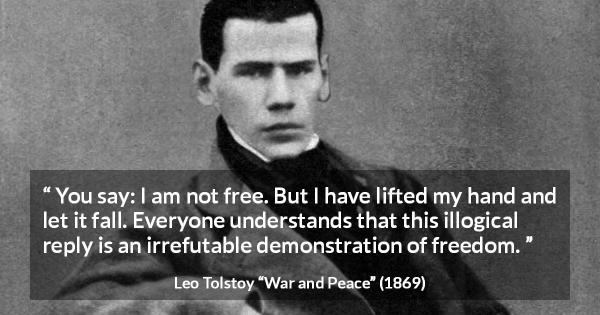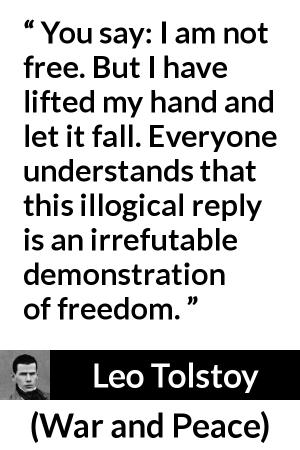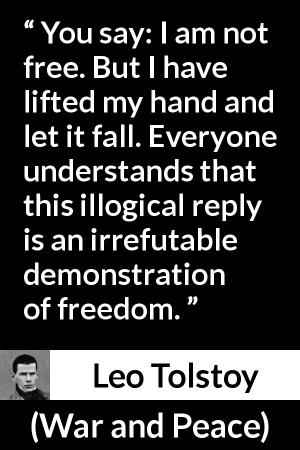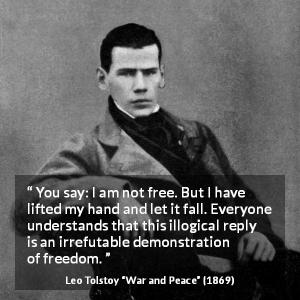“ You say: I am not free. But I have lifted my hand and let it fall. Everyone understands that this illogical reply is an irrefutable demonstration of freedom. ”
Leo Tolstoy, War and Peace (1869). copy citation
| Author | Leo Tolstoy |
|---|---|
| Source | War and Peace |
| Topic | freedom action logic |
| Date | 1869 |
| Language | English |
| Reference | |
| Note | Translated by Louise and Aylmer Maude |
| Weblink | http://www.gutenberg.org/files/2600/2600-h/2600-h.htm |
Context
“If, observing himself, man sees that his will is always directed by one and the same law (whether he observes the necessity of taking food, using his brain, or anything else) he cannot recognize this never-varying direction of his will otherwise than as a limitation of it. Were it not free it could not be limited. A man's will seems to him to be limited just because he is not conscious of it except as free.
You say: I am not free. But I have lifted my hand and let it fall. Everyone understands that this illogical reply is an irrefutable demonstration of freedom.
That reply is the expression of a consciousness that is not subject to reason.
If the consciousness of freedom were not a separate and independent source of self-consciousness it would be subject to reasoning and to experience, but in fact such subjection does not exist and is inconceivable.” source
You say: I am not free. But I have lifted my hand and let it fall. Everyone understands that this illogical reply is an irrefutable demonstration of freedom.
That reply is the expression of a consciousness that is not subject to reason.
If the consciousness of freedom were not a separate and independent source of self-consciousness it would be subject to reasoning and to experience, but in fact such subjection does not exist and is inconceivable.” source
